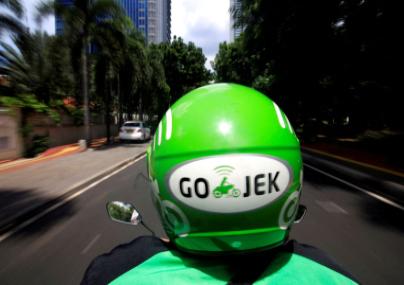Chandra Hamzah
Head of AHP’s Dispute
Resolution and Litigation Dept.
chandra.hamzah@ahp.co.id
A: Menara Rajawali 16th Floor,
Jalan DR. Ide Anak Agung
Gde Agung Lot # 5.1
Kawasan Mega Kuningan,
Jakarta 12950, Indonesia
T: (62) 21 2555 7800
F: (62) 21 2555 7899
W: www.ahp.co.id
Introduction
The House of Representatives (“DPR”) passed the Patents Bill into law on 27 July 2016. The new legislation (“2016 Patents Law”) is aimed at stimulating innovation and growth in the number of patents granted to Indonesian inventors from both the public and private sectors, while placing an express obligation on patent holders to use their patented processes or manufacture their patented products in Indonesia. The 2016 Patents Law further streamlines the patenting process and introduces the possibility of engaging independent experts as patent examiners in anticipation of rapid developments in the technological, communications, information and health sectors. As of the time of writing, the 2016 Patents Law had yet to be gazetted and provided with a reference number.
Background
Defined broadly, a patent is an exclusive right that is accorded by the state to an inventor to commercially exploit their invention for a defined period. Under a patent, the inventor may prevent a third party from making, using or selling the patented invention without the consent of the patent holder.
The law of patents has a long history in Indonesia. Prior to independence, some 18,000 patents had been issued in what was then Netherlands Indies under the Octroii Wet (Patents Law). As with many new nations in the second half of the twentieth century, the post-independence Indonesian state had little interest in enforcing the intellectual property legislation it inherited from its colonial predecessor. This was not just due to resentment against colonialism, but also for the practical reason that most intellectual property originated in the more-developed nations and the rigid enforcement of IP protection would inflict prohibitive costs on a nation that urgently needed to harness technology as cheaply as possible.
Following the establishment of the New Order and the opening up of the economy in the late 1960s, Indonesia once again needed to devote attention to protecting intellectual property, in tandem with the country’s efforts to attract investment from the more-developed economies. This led eventually to the enactment of the Patents Law of 1989, which was subsequently amended in 1997, before being repealed and superseded by the Patents Law of 2001, which was intended to bring Indonesian patent law into line with the World Trade Organization’s Agreement on Trade Related Aspects of Intellectual Property Rights (TRIPs).
Since 2001, tremendous changes have taken place that are not accommodated by the 2001 legislation. This reality, together with Indonesia’s commitment to a sweeping update of IP law under the ASEAN Economic Community framework, required the enactment of the 2016 Patents Law.
Key Changes
The following are the key changes brought about by the 2016 Patents Law.
1. Broadens scope of petty patents
In order to encourage more domestic patent applications, the 2016 Patents Law broadens the scope of petty patents (also known as utility models or innovation patents) to include new inventions or improvements to existing inventions in terms of processes (invisible inventions), rather than merely visible improvements to an existing patented product, such as was the case under the previous Patents Law. A petty patent is similar to a patent, but the requirements for its granting are less stringent than in the case of a full patent. The idea is to make it easier for private individuals and SMEs to protect their inventions.
As with the previous legislation, the 2016 Patents Law provides that a petty patent is only valid for 10 years, rather than 20 years in the case of a full patent (in both cases, counting from the filing date).
2. Software is now patentable
Another significant change brought about by the 2016 Patents Law is that software may now be patented under certain conditions, whereas previously software received general protection only under the Copyright Law. In practice, software designers/inventors were reluctant to disclose the details of their inventions for the sake of obtaining a mere recordation under the Copyright Law, rather than the benefits of first-to-file registration that accrue from patenting.
Not all kinds of software are patentable, however. In fact, the 2016 Patents Law expressly excludes computer programs per se as patentable inventions, but with an exception for those having characters (i.e. instructions) with technical effects and functions that solve particular problems, whether tangible or intangible. As stated in the Elucidation on the 2016 Patents Law, this includes, for example, algorithms, and encoding and decoding software.
3. New provisions on patented drugs
There are a number of pharmaceutical-related provisions in the 2016 Patents Law that are aimed at supporting public access to affordable medicines. These provisions include:
- restricting the application of second medical use as a result of newly discovered forms of compound that do not produce increased efficacy or have no changes in chemical structures that are already known in the compound. This is intended to thwart attempts to extend the protection periods for patented drugs so as to prevent local manufacturers from producing low-cost generic versions of the same drugs;
- allowing the importation of patented drugs under mandatory licenses so as to ensure reasonable prices for drugs that are essential to human health; and
- permitting the production of a patented drug five years prior to the expiration of its patent for the purpose of applying for a marketing/distribution license upon the expiry of the relevant patent.
4. Genetic Resources and Traditional Knowledge
In the case of an invention that avails of genetic resources and/ or indigenous knowledge, the 2016 Patents Law requires that the origin of such resources or knowledge should be fully disclosed in the patent application so as to prevent such things being claimed by other countries. The 2016 Patents Law also acknowledges and supports the need for Access Benefit Sharing (ABS), that is, the fair and equitable sharing of benefits arising from the use of genetic resources.
5. Broadens authority of the Patents Appeals Commission
The 2016 Patents Law broadens the authority of the Patents Appeals Commission to allow the Commission to not only hear and decide upon appeals against patent application rejections, but also:
- appeals concerning the correction of a description, claim and/ or image after a patent is granted; and
- appeals against the granting of patents to third parties.
6. Miscellaneous
Other important changes introduced by the 2016 Patents Law include:
- the possibility of pledging a patent as security (fidusia), in the same way as a copyright may be pledged as security;
- Acknowledgement of the right of an inventor to obtain and hold a patent where such inventor is a public servant; and
- permits the use of “wakaf” (charitable or religious bequest under Islamic law) to assign a patent.
Ancillary Regulations
Although the 2016 Patents Law broadly fulfills Indonesia’s obligations under the AEC agreement, as well as international IP agreements, it will not be effective without the issuance of the necessary ancillary regulations. A failure to issue such regulations was one of the principal reasons that held back growth in patent applications under the previous legislation. It is, therefore, to be hoped that the necessary regulations will be issued in a timely fashion so as to bring the number of patents issued in Indonesia up to a level that is commensurate with the size of the country’s population and status as a middle-income country.


